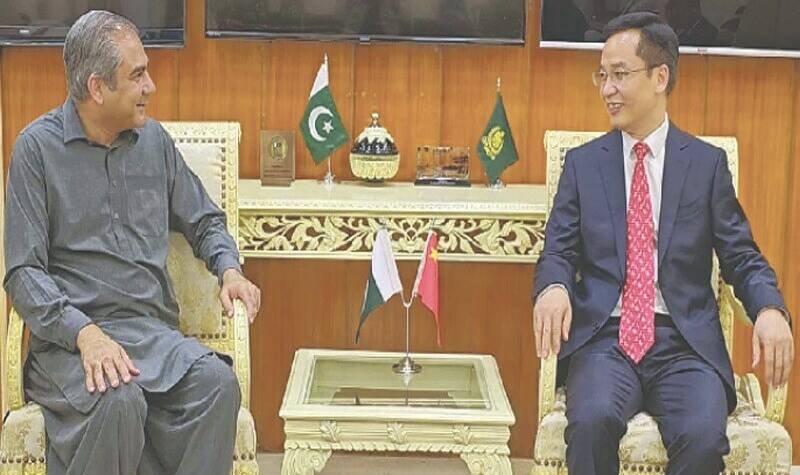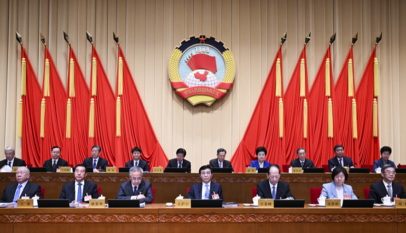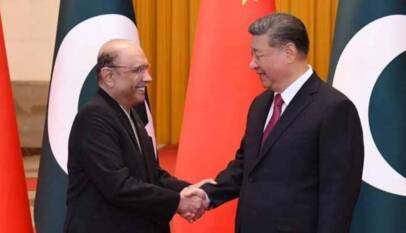Pakistan and China Strengthen Security Ties with Joint Exercises Planned in Gilgit-Baltistan
ISLAMABAD: Interior Minister Mohsin Naqvi met with a Chinese delegation led by Minister Chen Mingguo to enhance cooperation in counter-terrorism, cross-border collaboration, anti-smuggling, and anti-narcotics. Both sides agreed to conduct joint police and paramilitary exercises in Gilgit-Baltistan or Xinjiang and to train GB police officers at the Xinjiang Police Academy. Pakistan will send a delegation to Xinjiang, and Naqvi accepted an invitation to visit the region. Emphasizing the importance of Xinjiang due to its 600-kilometer border and CPEC, Naqvi highlighted Pakistan’s commitment to combating smuggling and terrorism.
ISLAMABAD: Pakistan and China on Saturday agreed to enhance cooperation in various fields, including counter-terrorism and border management, and jointly work to prevent smuggling and drug peddling.
The agreement was reached during a meeting between Interior Minister Mohsin Naqvi and a high-level Chinese delegation, led by Minister for Political and Legal Affairs Chen Mingguo.
The minister welcomed Mr Chen and his delegation upon their arrival at the Ministry of Interior. During the meeting, Pakistan-China relations, particularly with Xinjiang, and matters of mutual interest were discussed.
Both sides agreed to conduct joint police and paramilitary forces exercises in Gilgit-Baltistan or Xinjiang and train GB police officers at the Xinjiang Police Academy. It was also agreed that comprehensive measures would be taken against terrorism which is a global issue.
It was decided that a Pakistani delegation, led by the interior secretary, would soon visit Xinjiang to enhance mutual cooperation.
The Chinese minister also invited the interior minister to visit Xinjiang.
Mr Naqvi said Xinjiang province is of vital importance for Pakistan in its relations with China, underscoring that besides being Pakistan’s neighbour, “we have a 600km-long border with Xinjiang”.
He added that the China-Pakistan Economic Corridor (CPEC) project also passes through Xinjiang, emphasising that Pakistan wants to completely eliminate smuggling of drugs, arms, and other illicit goods. The minister noted that Pakistani delegation’s visit to Xinjiang would open new avenues for strengthening mutual cooperation.
Mr Chen expressed the desire to enhance relations with Pakistan in all fields. He said terrorism is a common problem, adding that Xinjiang had suffered from it for many years.
He highlighted that Pakistan can benefit from Xinjiang’s experience in counter-terrorism. Pakistan-China relations, particularly with Xinjiang, and matters of mutual interest were discussed during the meeting.
The Chinese delegation included Xinjiang’s deputy secretary of the Committee of Parliamentary and Legal Affairs, executive director general of police, and vice president of the Xinjiang Police Academy.
Secretary Interior Khurram Ali Agha, Special Secretary Waqas Ali Mahmood, and Additional Secretary Nazar Muhammad Buzdar were also present on the occasion.
Silk Route Expo
Separately, Minister for Petroleum Dr Musadik Malik on Saturday led a delegation of Pakistani energy companies to the 8th Silk Route Expo, fostering collaboration with Chinese counterparts to boost Pakistan’s energy sector.
During a series of roundtable meetings, Dr Malik met with representatives of leading Chinese companies, including the Shaanxi Energy Bureau, Yanchang Petroleum Group, Hua Lu Engineering and Technology Group, Shanghai Electric, Shaanxi Blower Group, China Typical Group and Hangzhou Maibao Import & Export Company Limited at the Pakistan Pavilion, set up for the Expo in Xian, China.
Pakistani companies, including Oil and Gas Development Company, Pakistan Petroleum Limited, Mari Petroleum Company Limited, Fauji Fertiliser Company Limited and the Thar Coal Energy Board, showcased investment opportunities at the Expo, said a news release.
Opening the discussion forum, the minister assured the Chinese companies that Pakistan would provide maximum facilitation in partnering with Pakistani firms. During the meeting, key areas of partnership, including oil and gas exploration, refinery upgrades, coal conversion and regasification were discussed.
Dr Malik emphasised that Pakistan has one of the largest coal reserves and is committed to adding value to its natural resources while ensuring environmental protection.
“Moreover, the production of green and blue hydrogen, as well as ammonia, is under consideration. We will become technology partners and joint venture partners,” Dr Malik remarked.
China’s top political advisory body to hold annual session from March 4 to 10
ISLAMABAD, Mar 3 (APP): China’s Two Sessions, the annual gatherings of the National People…












